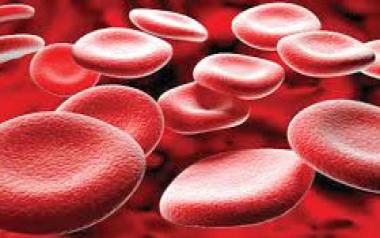Hemoglobinopathy is a kind of genetic defect that results in abnormal structure of one of the globin chains of the hemoglobin molecule. Hemoglobinopathies are inherited single-gene disorders; in most cases, they are inherited as autosomal co-dominant traits. Common hemoglobinopathies include sickle-cell disease.
The term sickle cell disease (SCD) describes a group of inherited red blood cell disorders. People with SCD have abnormal hemoglobin, called hemoglobin S or sickle hemoglobin, in their red blood cells.
Hemoglobin is a protein in red blood cells that carries oxygen throughout the body.
“Inherited” means that the disease is passed by genes from parents to their children. SCD is not contagious. A person cannot catch it, like a cold or infection, from someone else.
Thalassaemia is an anaemic blood disorder. A person suffering from this disorder has defective manufacture of hemoglobin and ineffective erythropoiesis i.e. Manufacture of blood cells in the bone marrow. Thalassaemia is one of the most common inherited diseases. This disorder is geographically common in the people of Mediterranean, African and Southeast Asian origin. The cause of the disease is not known other than the fact that it is an inherited disorder.
